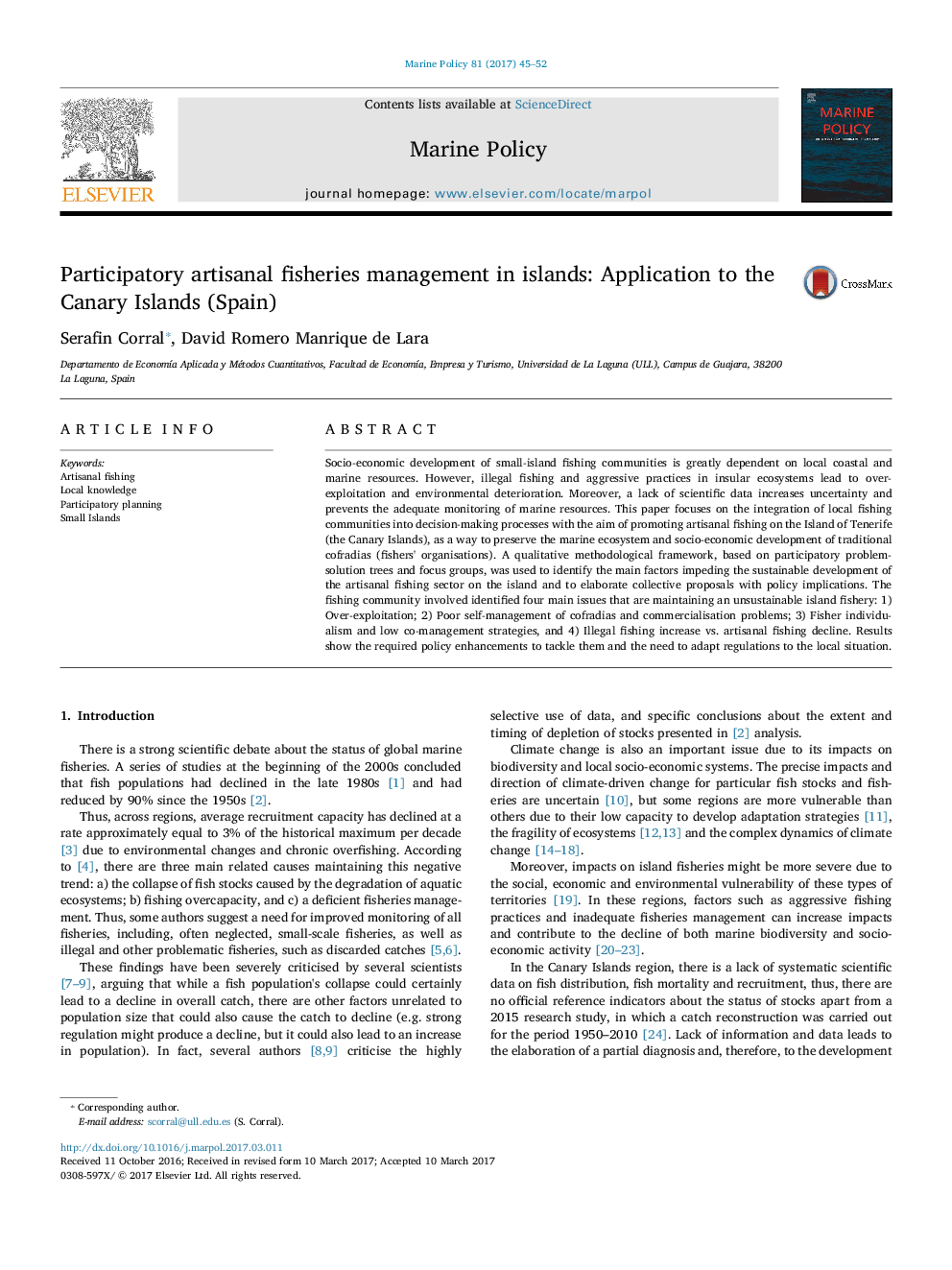ترجمه فارسی عنوان مقاله
مدیریت ماهیگیری مشارکتی در جزایر: درخواست برای جزایر قناری (اسپانیا)
عنوان انگلیسی
Participatory artisanal fisheries management in islands: Application to the Canary Islands (Spain)
| کد مقاله | سال انتشار | تعداد صفحات مقاله انگلیسی |
|---|---|---|
| 143151 | 2017 | 8 صفحه PDF |
منبع

Publisher : Elsevier - Science Direct (الزویر - ساینس دایرکت)
Journal : Marine Policy, Volume 81, July 2017, Pages 45-52
ترجمه کلمات کلیدی
ماهیگیری ماهیگیری، دانش محلی، برنامه ریزی مشارکتی جزایر کوچک،
کلمات کلیدی انگلیسی
Artisanal fishing; Local knowledge; Participatory planning; Small Islands;
ترجمه چکیده
توسعه اجتماعی و اقتصادی جوامع ماهیگیری جزیره بسیار وابسته به منابع ساحلی و دریایی محلی است. با این حال، ماهیگیری غیرقانونی و اعمال تهاجمی در اکوسیستم های جزر و مد منجر به سوءاستفاده و زوال محیط زیست می شود. علاوه بر این، کمبود داده های علمی نااطمینانی را افزایش می دهد و مانع نظارت مناسب بر منابع دریایی می شود. این مقاله بر ادغام جوامع ماهیگیری محلی در فرآیند تصمیم گیری با هدف ارتقاء ماهیگیری و تفریحی ماهیگیری در جزیره تنریف (جزایر قناری) به عنوان راهی برای حفظ اکوسیستم دریایی و توسعه اجتماعی و اقتصادی کافرادی های سنتی ( سازمان ماهیگیران). چارچوب روش شناختی کیفی، بر اساس درخت های حل مشکلی مشارکتی و گروه های متمرکز، برای شناسایی عوامل اصلی مانع توسعه پایدار بخش ماهیگیری در جزیره و تعریف پیشنهادات جمعی با دلایل سیاست استفاده شده است. جامعه ماهیگیران درگیر چهار موضوع مهم را شناسایی کرده اند که حفظ ماهیگیری جزر و مد غیرقابل استمرار: 1) بیش از حد بهره برداری؛ 2) خودکارآمدی کوچک و مشکلات بازاریابی؛ 3) فردگرایی فیشر و استراتژی های مدیریت کم مدیریت، و 4) افزایش ماهیگیری غیرقانونی در مقایسه با کاهش ماهیگیری استراتژیک. نتایج نشان می دهد که پیشرفت های سیاست مورد نیاز برای مقابله با آنها و نیاز به اقتباس مقررات مربوط به وضعیت محلی است.

